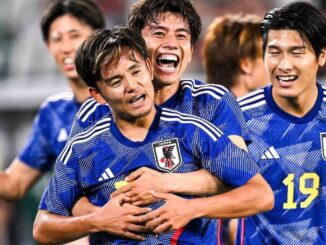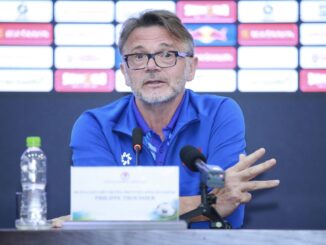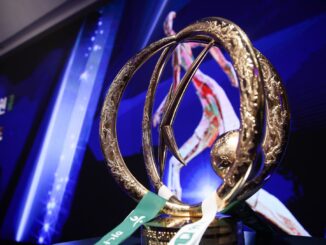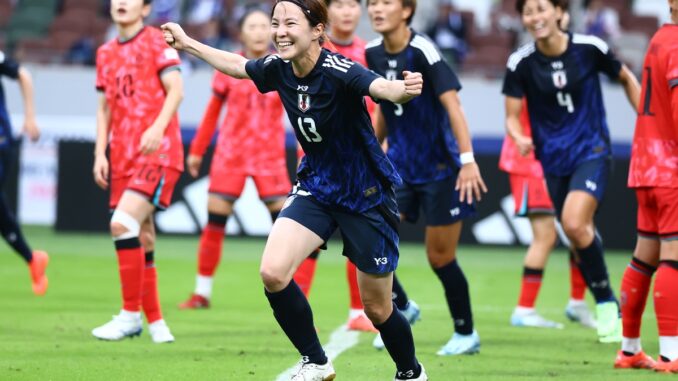
The international window often provides an opportune moment to reshuffle the deck and venture new ideas. Certainly this was the case for Japan and South Korea who met for a pair of exhibition matches hosted in Tokyo.
The first was a regular competitive match played in front of a 12,000-strong crowd at the Japan National Stadium with the hosts cruising to a 4-0 victory. The second remained behind closed doors and kept to just 30 minutes each half.
Again the hosts won but with a smaller scoreline of 2-0. It appears that both sides used this exercise as a means of establishing their best tactical systems from here on with the 2027 FIFA Women’s World Cup and Olympics of the subsequent year firmly in mind.
Norio Sasaki, the manager that led the Nadeshiko to its Women’s World Cup triumph, returned to the helm on an interim basis following the departure of Futoshi Ikeda in the aftermath of Paris 2024. Sasaki was confident that the exercise bore fruit when addressing the press after the first bout at the National Stadium.
“Although its only been a short time since I’ve taken over, the players and staff have done well to lay the ground work and deliver the results on the pitch that exhibit our renewed vision for Nadeshiko Japan,” the 66 year old said.
“Naturally there were some mistakes here and there, but the players kept going for the full 90 minutes and left everything out there.”
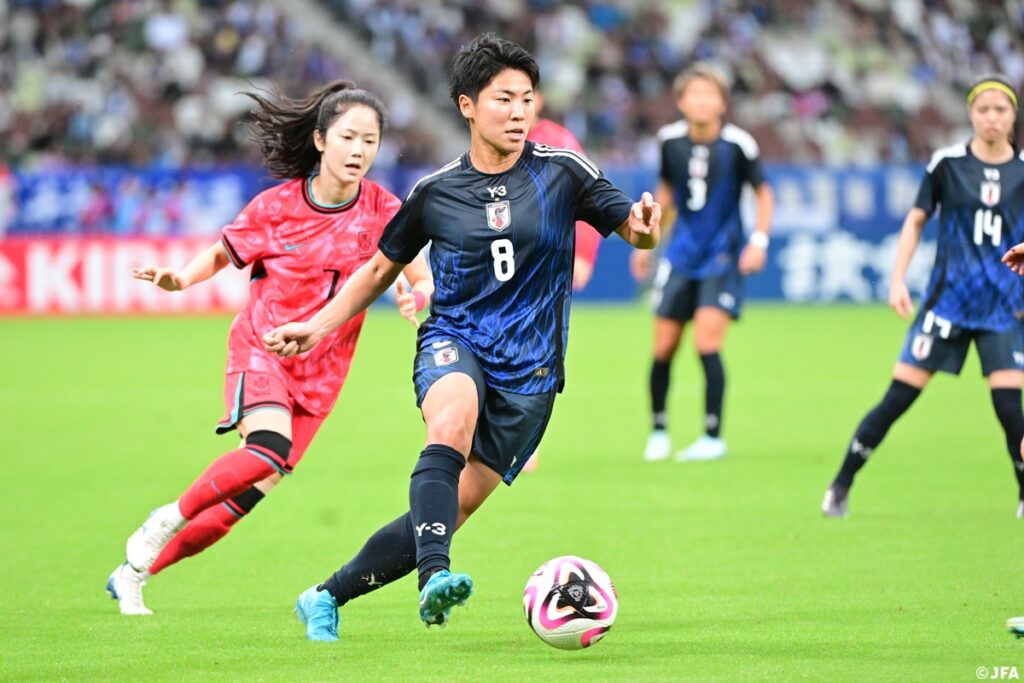
It is clear that Sasaki’s intention for this window was to introduce the preferred style of play and tactical foundations that are to be continued with when the next Nadeshiko boss is finally appointed.
“I wanted to bring this team a little closer to the long-term goals we have set out before passing the baton to the next manager. I am confident that this will become a side that will live up to people’s expectations for the next Women’s World Cup and Olympics.”
And Sasaki’s revisions were far from subtle. Perhaps most notable of all is the abandonment of the back-three, a staple of the Ikeda era, and the return to a 4-4-2 system. The Yamagata native outlined the reasons behind his inclination towards this approach.
“This is a system that is easy to change during play. For example we can easily transition to 4-1-4-1 which allows us to get numbers into our final third,” he explained.
“This system has formed the basis of our training this time around and we haven’t done anything with three at the back.”
Another eyebrow raiser was the captaincy reassignment from Saki Kumagai to high-performing goalkeeper Ayaka Yamashita, although this is not expected to be a long-term change. The Manchester City starting keeper described the moment she was given the opportunity to the press post-game.
“To be honest, I never considered myself a natural captain, personality wise,” the 29-year-old said.
“But I started to realise that we depend a lot on Saki and it would be good for me to experience that role. So of course I decided to take the chance.”
Over on the Korean side, things are progressing at a slightly slower rate. Sadly, renowned playmaker Ji So-yun is currently sidelined through injury and did not join the squad for this excursion. Birmingham City forward Choe Yu-ri was also left out of proceedings this time around.
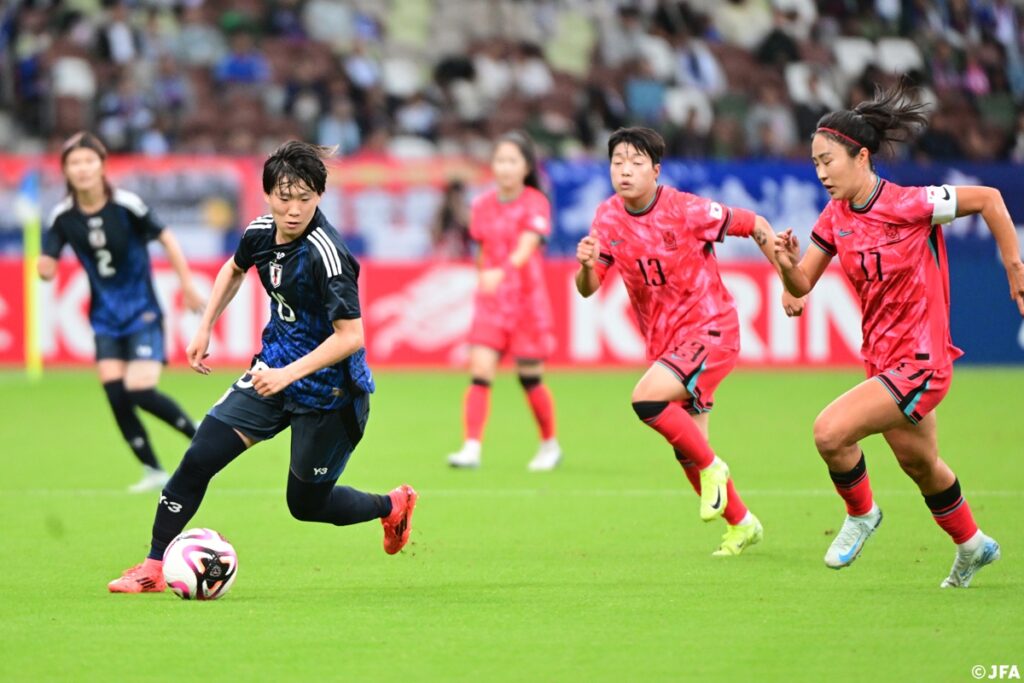
Hampering preparations even further, incoming manager Shin Sang-woo had enjoyed a mere three days with his side before arriving in Tokyo for the first match.
“Today Japan was clearly the stronger team, but I think there are some positives we can take away,” the former Gimcheon Sangmu manager highlighted post-game.
“Although the players and I have only had three days training together I think they held shape well and showed a lot of potential we can work with. Some of our strongest players based overseas were not available for this exercise but I was encouraged by the way our young prospects and domestic based veterans combined and worked together.”
It is no exaggeration to describe the Korean situation as chaotic. Since outgoing manager Colin Bell’s departure in June of this year the 2022 Women’s Asian Cup runners-up have not convened for either a competitive match or training camp, effectively rendering them inactive for a period of six months.
This goes some way in offering reasons behind their fragmented organisation and lack of resolve over the two matches.
Understandably this has led to justified concerns over the declining health of women’s football in Korea and how the organisers will address the situation. But Shin was quick to assert both his and the Korean Football Association’s commitment to a long-term course correction.
“I have been tasked with the mission of improving the landscape of women’s football in South Korea,” he said. “I have had several positive conversations with the KFA and I am happy to say they have been very receptive to the suggestions I have put forward.”
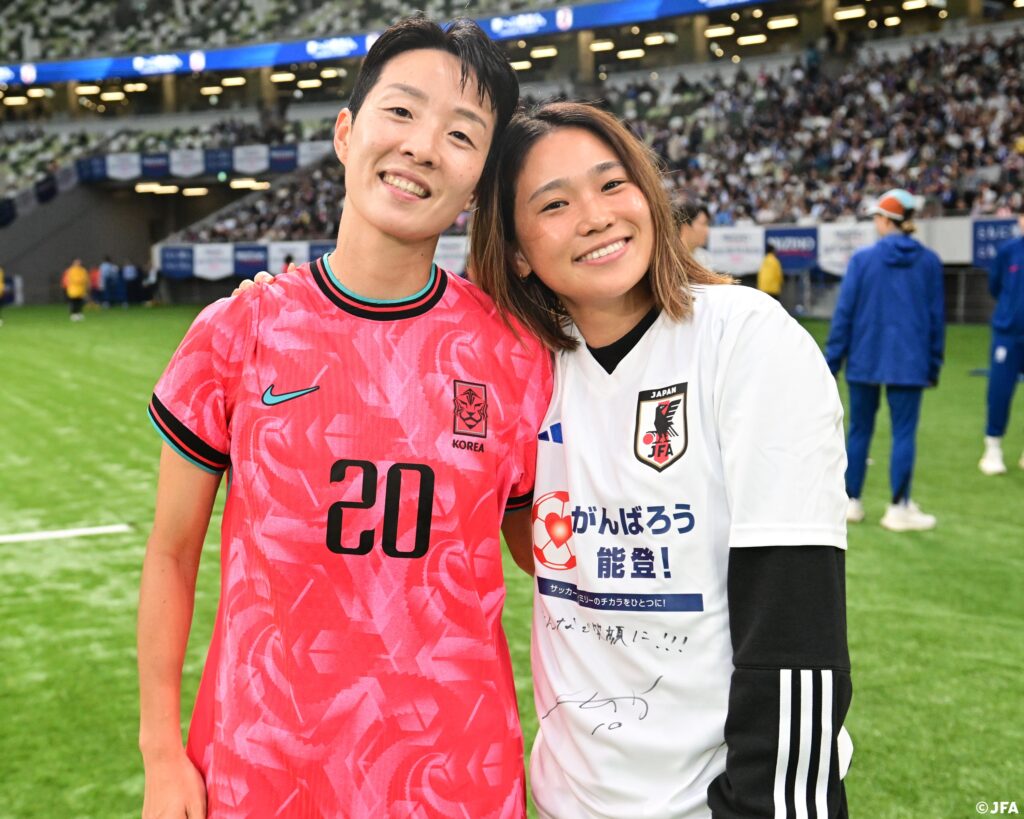
So the optimism is there at least. Luckily for Shin and all those with a vested interest in South Korean women’s football there is an ample amount of time to put things right before the 2026 AFC Women’s Asian Cup comes around. There is also talk of a proposed friendly match with world champions Spain to be played in Europe during the final international window of 2024.
But the search and selection of the next Nadeshiko boss is likely to be the hottest topic of East Asian women’s football as the year comes to a close. Sasaki provided media partners with a progress update on the matter upon conclusion of the second match.
“Up until now we have focused entirely on foreign candidates,” he said candidly.
“We have narrowed down the candidate pool a bit and we are in negotiations with some high potential individuals. From here we will now approach Japanese coaches and bring them into the consideration.
“We expect to make a final decision by the end of the year, ideally within November. If we are unable to secure an ideal candidate within November there is a chance that the search will extend to early next year but we are confident of reaching a decision within 2024.”
Both Japan and South Korea are likely to participate in similar exhibition matches for the final women’s international window of 2024, which for AFC nations will run from 25 November to 7 December.
Photos: Japan Football Association


